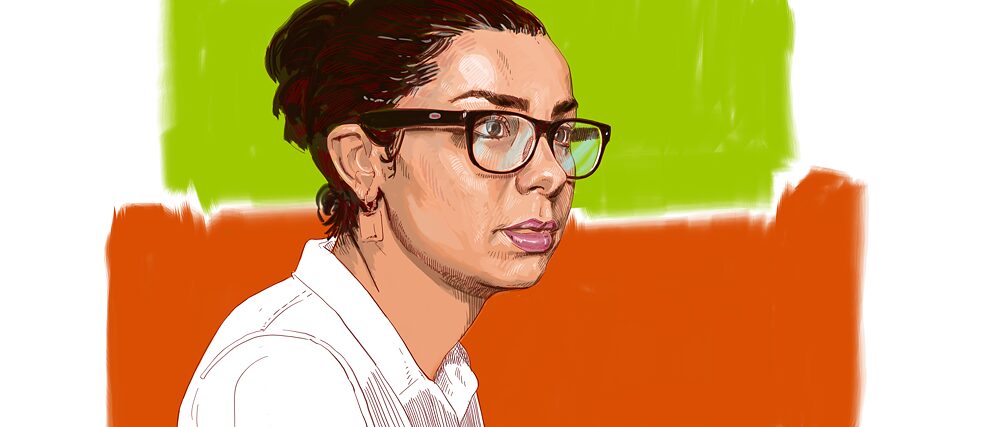by Huda Al Kadhimi from Baghdad and Amman
Door of the East, HARAM

Salam Yousry © Goethe-Institut
Huda Jasim Al-Kadimi was born in Baghdad in 1991. In 2006, she moved to Jordan with her family to flee the sectarian conflicts in Iraq. She now travels frequently between Baghdad and Amman for her documentary.
Huda is a writer and producer, she holds a bachelor’s degree in Business Administration from Al-Ahliyya Amman University in Jordan. She joined the Iraqi Independent Film Centre (IIFC) in 2013. She participated in a workshop run by the Royal Institute for Film Production, which further fuelled Huda’s interest in film production. She now owns a production company of her own and has produced several short and feature films.
Huda’s project
Huda’s project is a documentary film directed by Medo Ali. It runs at about 90 minutes. The film is at its final stages of production. It tells the story of three Arab women who seek refuge and settle in France. The first is an Iraqi woman whose relatives forced her to marry. She refused and ran away to France. The second is a Tunisian woman, daughter of a Jewish mother and Muslim father. She dreams of becoming a boxer, defying the social norms that are set against her. She too decides to leave her home and seek refuge in France. The third woman is from Syria. Along with her brother, who is deaf, she flees her war-torn home country and settles in France.The documentary is centred around the lives of these three women after they have lived in France for a few years. The documentary explores whether and how they have achieved their dreams. Regarding this film, Huda says, “There is only one man in the documentary, and that is Roza’s brother (the Syrian girl’s deaf brother). The film endeavours to examine the psychology of Arab women who suffer from the many problems and backward norms of their societies.”
The ideas behind this project
Girls who run away from their families in Baghdad are on the rise due to the restrictions their families place on their freedoms. Women and girls in the Arab-speaking world are under significant pressure because of their sex. Huda describes Arab women’s psychology as ‘complex’. She highlights this in her documentary. When the Iraqi girl reaches France, she throws away her hijab immediately and dances Arabic/Middle Eastern dance everywhere, in the metro, on the street and in public spaces. This is an indication of how many restrictions are placed on women.As Huda mentions, none of these three women who fled to France could achieve their dreams and become free so long as they remained in their home countries. The Tunisian girl was prevented from boxing because of her parents’ religious mentality. She married an Algerian man in France so that she would not be deported back to Tunisia. This man too, however, stopped her from becoming a boxer. The woman bore two children with him and suffered abuse at his hands. Her dreams ultimately went unfulfilled. That three women from different countries should find themselves in France with their problems never trailing too far behind them is an indication that the sky is the same for all of them, whether in their homelands or in Europe.
Comments
Comment